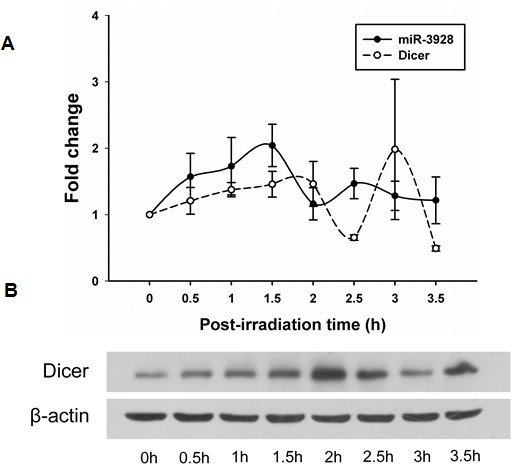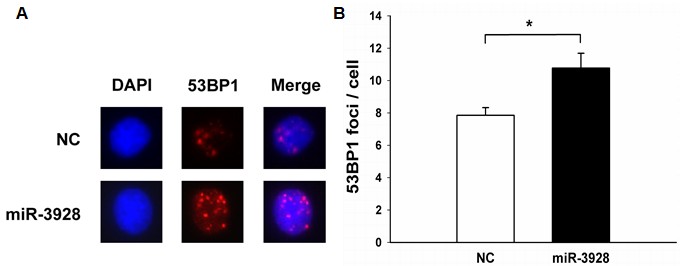MicroRNAs (miRNAs) are a class of endogenous small non-coding RNAs. Alterations in miRNA expression have been observed in cells subjected to exogenous stresses, implying that miRNAs play an important role in cellular stress response; however, the underlying mechanism is still largely unknown.
Recently, the epigenetic effects in ionizing radiation have been studied by researchers at the Department of Space Radiobiology, Institute of Modern Physics, Chinese Academy of Sciences (IMP).
Researchers found that miR-3928 was implicated in cellular response to ionizing radiation including X-rays and carbon ions generated by the Cooling-Storage Ring System at Heavy Ion Research Facility in Lanzhou (HIRFL-CSR). They verified that miR-3928 directly bound to the 3’-untranslated region of Dicer mRNA, which is a key factor for the maturation of the majority of miRNAs.
Consequently, Dicer expression was suppressed and the maturation of other miRNAs including miR-185, miR-300, and miR-663, was inhibited. Over-expression of miR-3928 induced DNA damage, activated ATR, and phosphorylated Chk1 accompanied by G1 arrest.
Taken together, these findings replenished ATR/Chk1 pathway by revealing a novel miRNA regulatory network in response to exogenous stress, in which miR-3928 plays an important role in regulating the expression of Dicer.
The paper has been published in RNA Biol. 2012 Aug 24;9(10).
http://www.landesbioscience.com/journals/rnabiology/article/21821/?nocache=2126425720

Fig.1 A. miR-3928 and Dicer mRNA levels were monitored by qRT-PCR at the indicated time points after irradiation with 4 Gy X-rays. B. Western blot assay shows Dicer expression at the indicated time points after irradiation with 4 Gy X-rays. (Image by IMP)

Fig. 2 DNA damage was assayed by immunostaining for 53BP1 foci. (Image by IMP)

